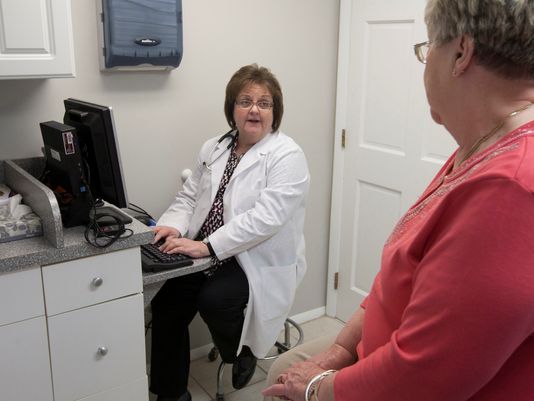A complaint one often hears about electronic medical records (EMRs) is that the doctor pays more attention to the computer than the patient during an office visit. Among nations using EMR, is this a characteristically American problem?
I read an illuminating letter to the editor recently that compares the doctor/patient/EMR experience in the US and Canada. The letter was from Dr. Alan B. Astrow, a hematologist/oncologist who practices in Brooklyn, NY. He writes: (emphasis added)
Many American physicians agree that recording patient data electronically has interfered with “a deeply human, partly intuitive and empathetic process,” and has led to inefficient care. Since no one wants to revive illegible paper charts, however, the indictment encourages us to ascribe these harms to the price of progress.
A Canadian physician friend, though, says he uses an electronic record that does not disturb his rapport with patients. He also sees more patients hourly than American counterparts without compromising quality.
Why the difference? American physicians must choose from five levels of service when submitting bills. Of necessity, we tend to include extraneous information to justify higher levels and satisfy potential insurance company audits. Canada has only two levels, so doctors’ notes are short and succinct.
Electronic medical records in the United States have developed to serve the needs of our billing system. When clinicians must enter data that does not advance patient care, we waste human capital, demoralize physicians and shortchange patients. It is time to revisit those levels and get doctors back to connecting with patients rather than with machines.
As I mentioned in a recent post, for-profit medicine in the US is so taken-for-granted that we barely notice it. The side-effects, however, can be detrimental to patients and, as Dr. Astrow points out, demoralizing to doctors.
Related posts:
Medical screening, overdiagnosis, and the motives of for-profit hospitals
From MD to MBA: The business of primary care
Patient safety and corporate profits
For-profit medicine and why the rich don’t have to care about the rest of us
Drug shortages: “We are talking about people’s lives; this is not a cell phone contract”
The Dreams of the Founders of Family Medicine
The doctor/patient relationship: What have we lost?
Doctors in the trenches speak out – Part One
Image source: USA Today
Resources:
Alan B. Astrow, Fixing Medical Records, The New York Times Book Review, November 21, 2014, p 6



Sorry, comments are closed for this post.